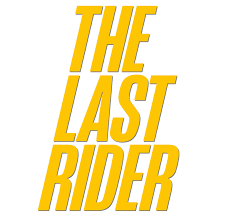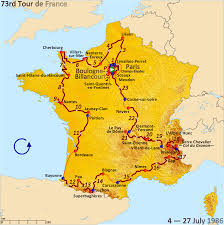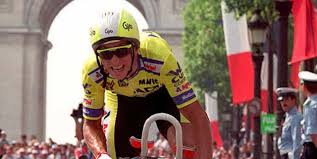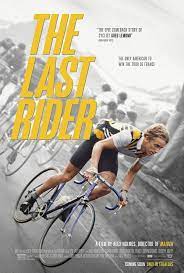The Last Rider (2022)
IMDb meta-data is runtime 1 hour and 42 minutes.
Genre: Documentary; Species: Sports; Sub-species: Autobiography.
DNA: USA.
Verdict: Whew!
Tagline: Alpe d’Huez pales.

Greg Lemond (1961+) wanted to be a ski instructor near his mountain home because it was a way to meet girls and get paid (and laid). To qualify for that work he had to train on a bicycle during the off season, and soon discovered (1) a girl to keep and (2) that he liked being on the bike (which is well explained later). Thereafter he was never off a bike voluntarily.
Despite the outward appearance of this blond adonis, he was star-crossed. On that, more in a moment.
First his achievements were many, including three wins at THE Tour de France. In one of the victories he did something no other rider had ever done before nor has anyone even in chemically-enhanced race done it. In that sense he was The Last Rider.

In 1987 he had ridden dead last, Lanterne Rouge in French Bike-speak. He finished 198th out of 198 ridders. In this sense, too, he was the last rider. But he finished, and vowed to come back. He did.
To gain the second Mailot Jaune he won the race on the Champs Elysee in a time trial. Bikers who know what a time trial is will realise how hard that must have been. He went into that time trial of 25-kilometres trailing his arch rival by 50-seconds over the previous 2,500+ kilometres. On the sofa 50-seconds doesn’t seem like much but to meet and surpass that in a short time trial, intended more for show than go, was deemed impossible.
Moreover, Lemond was carrying long-term injuries, for he had been shot in a hunting accident (due to which he missed the 1988 Tour) and that would cut into his stamina. Still he went on and on, and on. Why? Partly perhaps because it was all he knew how to do. He knew how to race, but he did not know how to quit and certainly not on the day before the finish.

On the day he melded with his bike, and as one they blazed a path into the record books no other mortal could follow on the day. Perhaps it was lady Athena who made time stop for him while he pedalled on as she did for Odysseus on the beach at Troy to talk to his men. He not only made up the 50-seconds to erase his lag but added 8-seconds on top, as it turned out. His adversary, himself carrying a more recent injury, was bigger and stronger and more technically proficient, but none of that was enough. No other rider has ever won on the Champs Élysées. Phil Leggett, the doyen of bicycle lore, has said it was the greatest finish to the greatest race.
It was pretty much a single-handed victory for the only team that would contract him after that 198-finish was a scratch team that participated more to advertise a product than to race. There were no domestiques to bring him water, no pacers to create a tailwind, no guardians to shelter him cross winds, and it was in the day before radios and ear pieces.
There is more to the story, a lot more. Suffice it to say he found riding therapeutic for the shame, embarrassment, difficulty of life. In it he found a pure world where he got affirmation, self-expression, and a disciplined freedom. He was then and has remained a scourge against drug use in cycling and was one of Lance Armstrong’s earliest and most persistent critics, who was at last vindicated.
A modest champion, he dedicated this documentary to that arch rival whom he beat that day on the cobblestones.
It take a lot to get me out after dark but I went to see it on half-price Tuesdays at the Dendy which sits between home and man-cave because of the legend and it was worth it.

